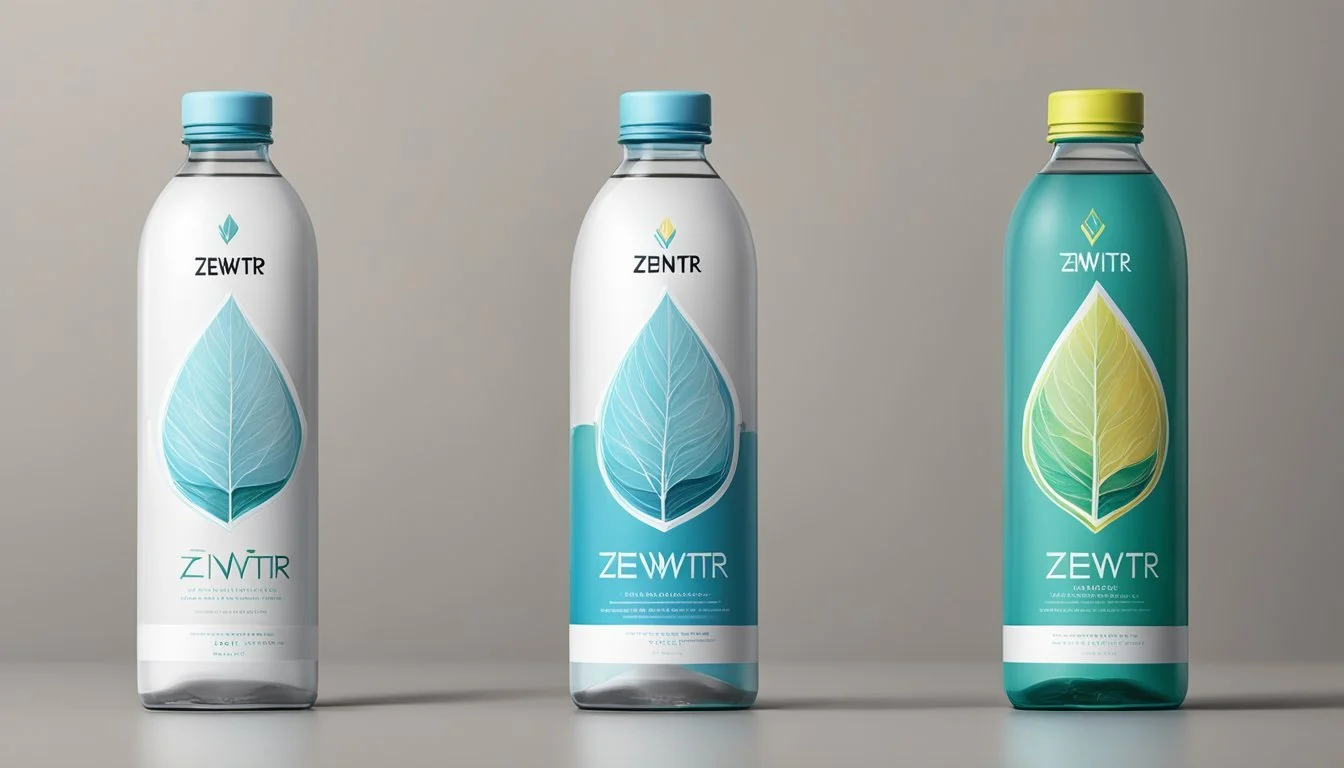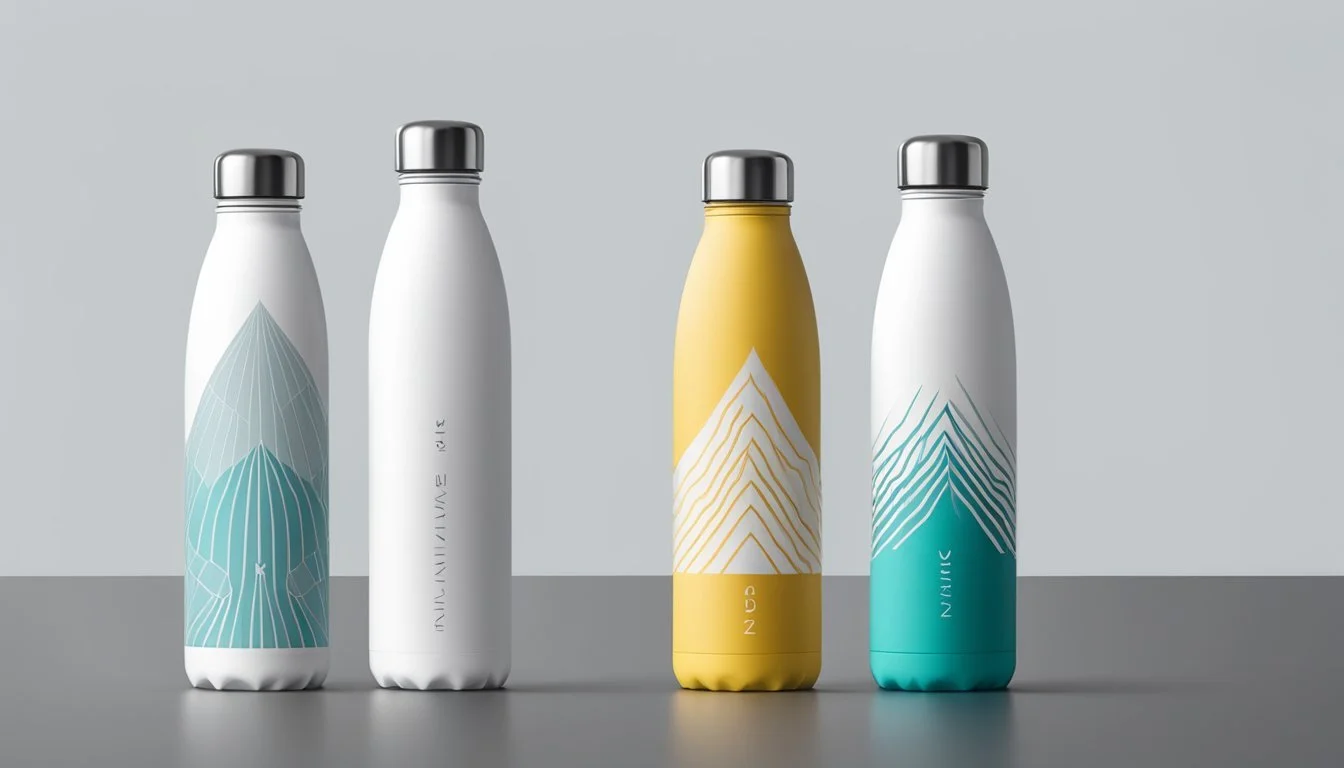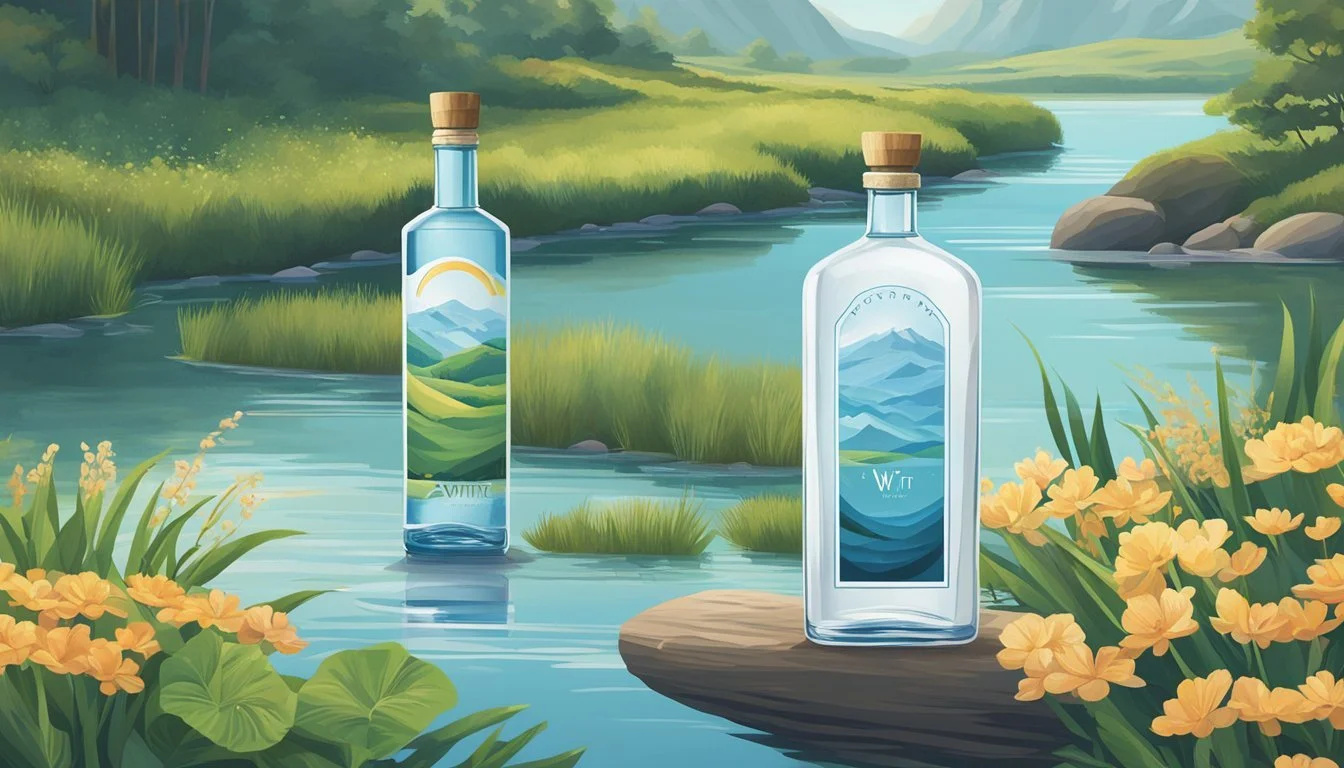Zenwtr vs. 1907water
Detailed Comparison for Optimal Hydration
When it comes to choosing the best bottled water, hydration quality often takes center stage. ZenWTR has gained recognition for its natural alkalinity, boasting a pH of 9.5, which contributes to its smooth taste and potential health benefits. On the other hand, 1907water is known for its artesian origin, providing clean, mineral-rich hydration straight from nature.
1907water offers a uniquely fresh taste stemming from its New Zealand origin, enriched with naturally occurring minerals. This sets it apart from many bottled waters that undergo extensive purification processes. ZenWTR, with its focus on environmental sustainability and natural alkalinity, stands out in a crowded market, making it a top choice for health-conscious consumers.
A direct comparison reveals that ZenWTR's naturally alkaline profile may be more appealing to those seeking additional health benefits from their water. Meanwhile, 1907water’s mineral content offers a natural and refreshing taste from an untouched source, appealing to purists. This dynamic presents an intriguing decision for consumers looking to elevate their hydration experience.
Understanding Bottled Water
This section covers various types of bottled water and the regulations ensuring their safety and quality. Knowing these details aids consumers in making informed choices.
Types of Bottled Water
Bottled water comes in several varieties, each with unique attributes. Purified water undergoes processes like reverse osmosis or distillation to remove impurities. It typically lacks minerals, lending it a clean, neutral taste.
Spring water is sourced from natural springs and retains natural minerals, which can enhance its taste.
Distilled water, produced through distillation, is free of minerals and other impurities, making it suitable for sensitive applications, though its lack of minerals results in a flat taste.
The mineral content of bottled water can significantly affect its flavor profile. Waters like ZenWTR, with high natural alkalinity, offer a smooth taste due to their mineral richness.
In contrast, purified waters like Aquafina have minimal mineral content, resulting in a more neutral flavor.
Bottled Water Regulations and Safety
Regulations ensure bottled water maintains high safety and quality standards. In the United States, the Food and Drug Administration (FDA) oversees bottled water, requiring it to meet standards akin to the Environmental Protection Agency (EPA) regulations for tap water.
Labels must accurately depict sources, whether spring, purified, or distilled water. This transparency helps consumers trust in the product's safety and quality.
Testing for contaminants, such as bacteria and chemicals, is mandatory. Rigorous filtration and purification processes help provide safe drinking water. Compliance with these regulations ensures the water sold is not only safe but also of the highest quality for consumers.
Evaluating Zenwtr and 1907water
In this section, we'll explore the origins and sources, taste profiles, and pH levels of Zenwtr and 1907water, providing a comprehensive comparison of these two bottled water brands.
Origin and Source Comparison
Zenwtr prides itself on being sourced from natural springs and is marketed as an eco-friendly choice, utilizing bottles made from 100% recycled ocean-bound plastic. This environmentally-conscious approach sets it apart in the bottled water market.
1907water, on the other hand, draws its water from an artesian aquifer in New Zealand. Known for its pristine and untouched nature, this source contributes to its premium positioning. Unlike tap water, which goes through significant treatment, the natural water in 1907water undergoes minimal processing to maintain its purity.
Taste Profile and Flavor
When it comes to taste, Zenwtr is described as having a clean, crisp flavor with no noticeable aftertaste, making it a popular choice among those who prefer a neutral water profile. Consumer feedback highlights its smoothness, attributed to its natural spring origin.
Conversely, 1907water offers a distinctive, refreshing taste that some describe as having a slight mineral essence. This subtle mineral content is a testament to its artesian source. Because it retains more of its natural elements, it stands out among brands marketed as premium bottled water.
pH Levels and Alkalinity
Zenwtr claims a high alkaline level, boasting a pH of 9.5. This positioning as an alkaline water is aimed at consumers looking for potential health benefits associated with higher pH levels. High alkalinity can result in a smoother taste, differentiating it from more acidic water brands.
1907water, which also has an alkaline nature, typically ranges around a pH of 7.8 to 8.1. While slightly less alkaline than Zenwtr, it still sits above the neutral pH of 7, which is commonly found in tap water. The natural alkalinity of 1907water is due to its artesian aquifer origin, contributing to its unique taste.
Health and Hydration Benefits
ZenWTR and 1907water both emphasize enhancing health and improving hydration through their unique properties. This section explores the specific benefits these waters offer in terms of electrolyte and mineral content, as well as their impacts on physical performance.
Electrolytes and Mineral Enhancement
ZenWTR is marketed as offering a unique blend of electrolytes. It includes essential minerals like calcium, magnesium, and potassium. These minerals are important for maintaining proper hydration and electrolyte balance in the body. Magnesium, for example, aids in muscle function and has antioxidant properties. Potassium is crucial for heart health and helps regulate fluid balance.
1907water also provides a robust mineral profile. Sourced from New Zealand artesian wells, it naturally contains silica, calcium, and magnesium. Silica supports connective tissue, skin, and bone health. The presence of these minerals not only aids hydration but also benefits bone strength and muscle function.
Hydration and Physical Performance
Effective hydration is key to physical performance, and both ZenWTR and 1907water claim to support this. ZenWTR, enriched with a specific formula of electrolytes, helps athletes and active individuals maintain optimal hydration levels. Proper hydration prevents muscle cramps and supports endurance during physical activities.
1907water, with its natural mineral content from artesian wells, supports hydration similarly. The presence of magnesium and calcium in 1907water can improve muscle recovery times and reduce the risk of cramps. This can be particularly beneficial for those engaged in frequent or strenuous physical activities.
Environmental Impact and Sustainability
ZenWTR and 1907water both prioritize sustainability, focusing on the use of recycled plastic and various eco-friendly initiatives. This section examines their efforts in the areas of recycled plastic usage, ocean conservation, and overall eco-friendly packaging practices.
Usage of Recycled Plastic
ZenWTR uses 100% recycled ocean-bound plastic for their bottles, a unique approach that helps mitigate plastic waste in at-risk coastal environments. This usage of post-consumer recycled plastic is a significant step towards reducing the environmental impact of plastic production and promoting circular economy practices.
1907water adopts recyclable plastic bottles, emphasizing their recycling programs. While their efforts do contribute positively to reducing waste, their use of recycled plastic is not as extensive as ZenWTR's. Consumers seeking brands with a strong focus on recycled materials might find ZenWTR's approach more compelling.
Ocean Conservation Efforts
ZenWTR actively supports ocean conservation, allocating resources to combat plastic pollution in the oceans. Their bottles are designed with certified ocean-bound plastic, reflecting their commitment to protecting marine environments.
Additionally, ZenWTR pledges 1% of its revenue to initiatives focused on ocean conservation and plastic waste reduction. This financial contribution underscores their dedication to environmental responsibility and highlights how they leverage their success to drive positive change.
1907water, in contrast, does not emphasize ocean conservation to the same degree. While their sustainability practices are noteworthy, they do not prominently feature specific efforts aimed at ocean conservation.
Eco-Friendly Packaging and Initiatives
ZenWTR's eco-friendly packaging is innovative, featuring bottles that are fully composed of post-consumer recycled plastic. This design reduces the need for new plastic production and supports recycling.
Their certified plastic negative initiative ensures that they remove more plastic waste from the environment than they produce, a significant step in combating plastic pollution.
1907water also engages in sustainable packaging practices, using recyclable materials and promoting environmentally friendly initiatives. Their focus includes reducing their carbon footprint and advocating for responsible sourcing of materials.
While both brands show commitment to eco-friendly practices, ZenWTR's comprehensive approach to recycling and plastic waste reduction sets a higher benchmark for the industry.
Cost and Availability
This section highlights the price differences and retail presence of ZenWTR and 1907water, helping consumers make informed purchasing decisions.
Price Comparison
ZenWTR typically retails between $2 to $3 per bottle, positioning it in the higher-end market. This reflects its premium branding and environmentally-friendly packaging.
1907water, on the other hand, usually costs $3 to $4 for a 1-liter bottle. This price point also places it in the premium category but at a slightly higher range than ZenWTR. Bulk purchasing can reduce costs, but the difference remains noticeable.
Summary of Price Points:
ZenWTR: $2 to $3 per bottle
1907water: $3 to $4 per bottle
1907water's higher price often correlates with its luxury branding and product quality.
Retail Presence and Accessibility
ZenWTR is widely available in various grocery stores and convenience stores across the United States. Its commitment to sustainability helps it penetrate markets focused on eco-friendly products.
1907water, sourced from New Zealand, has a strong global presence but might be less accessible in some U.S. regions compared to ZenWTR. Availability in local grocery and convenience stores can vary, making online ordering a more reliable option for consistent access.
In terms of convenience, both brands offer multiple purchasing options, though ZenWTR's broader availability in physical stores enhances its accessibility. These factors are crucial for consumers prioritizing ease of purchase.
Packaging and Design
When evaluating ZenWTR and 1907water, their packaging and design choices immediately stand out, both adopting unique strategies to appeal to environmentally conscious consumers and those who prioritize aesthetics.
Bottle Materials and Aesthetics
ZenWTR: ZenWTR makes a significant environmental claim with its bottles made from 100% recycled, certified ocean-bound PET (rPET) plastic. This not only helps remove plastic waste from oceans but also promotes recycling. The sleek design and clear appearance of the bottle give it a modern and clean look, which appeals to eco-conscious buyers.
1907water: In contrast, 1907water opts for a more traditional sustainable packaging material with its use of glass bottles. Glass is known for its purity and ability to preserve the taste of water without leaching chemicals. The bottle design is elegant, with a focus on simplicity and purity, often attracting those who prefer a premium feel.
Both brands aim to reduce their environmental footprints while providing visually appealing and practical packaging.
Consumer Perception and Brand Image
ZenWTR and 1907water are two bottled water brands that have a significant standing in the market, driven by their unique selling points and reputation. Consumers often look at brand values, eco-friendliness, and certifications when making their choices.
Brand Reputation and Certifications
ZenWTR is well-known for its commitment to sustainability. Its bottles are made from 100% recycled ocean-bound plastic, appealing to conscious consumers concerned about pollution. This focus on reducing waste has earned ZenWTR various eco-friendly certifications, enhancing its brand image.
1907water, on the other hand, is bottled at the source in New Zealand, providing a natural and pure product. The brand uses BPA-free recyclable plastic, which, while convenient, is less sustainable than glass. Consumers often appreciate its natural mineral content, which contributes to its taste. 1907water also carries certain certifications that emphasize its purity and natural origin.
Both brands resonate differently with consumers based on their preferences. Those prioritizing environmental impact may lean towards ZenWTR, while those valuing natural taste and origin might prefer 1907water. This division highlights the importance of matching brand values with consumer expectations and preferences.
Comparative Analysis
ZenWTR and 1907water are both premium bottled water brands that promise high quality and purity. This section compares them on water quality and purity, taste test results and reviews, and ionization and filtration techniques.
Water Quality and Purity
ZenWTR is sourced from various natural springs and is subjected to a multi-step purification process. It is packaged in 100% recycled, certified ocean-bound plastic, emphasizing sustainability.
1907water comes from an artesian aquifer in New Zealand. It is naturally alkaline with a pH of 8.0-8.8, rich in minerals, and free from contaminants. The purity levels are consistently high due to the pristine source. Both brands provide lab reports to validate their claims of purity.
Taste Test Results and Reviews
ZenWTR has a clean and crisp taste, attributed to its rigorous purification process. Consumers note its refreshing profile and neutral taste, making it ideal for casual drinking and hydration.
1907water, on the other hand, is praised for its smooth and slightly mineral-rich taste. The natural alkalinity adds a subtle, distinctive flavor that many find appealing. Taste tests often highlight 1907water's balanced taste, favoring it for its natural composition.
Ionization and Filtration Techniques
ZenWTR utilizes advanced filtration technologies, including microfiltration, reverse osmosis, and UV light. This process ensures that the water retains optimal purity while removing any potential contaminants.
1907water benefits from the natural filtration provided by its artesian source. The water is naturally ionized and undergoes minimal additional processing. This maintains its high mineral content and pH level, positioning it as a genuinely natural option in the alkaline water market.
Both brands employ methods that preserve water quality while ensuring that their products are free from impurities.
More About Zenwtr
Mountain Valley Spring Water vs Zenwtr: Which Bottled Water is Better?
Richard's Rainwater vs Zenwtr: Which Bottled Water is Better?
Whole Foods Italian Still Mineral water vs Zenwtr: Which Bottled Water is Better?
Zenwtr vs Kirkland Signature: Which Bottled Water is Better?
More About 1907water
1907water vs Kirkland Signature: Which Bottled Water is Better?
Cascade Mountain vs 1907water: Which Bottled Water is Better?
Hawaii Volcanic vs 1907water: Which Bottled Water is Better?
Hawaiian Springs vs 1907water: Which Bottled Water is Better?
Icelandic Glacial vs 1907water: Which Bottled Water is Better?
Mountain Valley Spring Water vs 1907water: Which Bottled Water is Better?
Nestle Pure Life vs 1907water: Which Bottled Water is Better?
Richard's Rainwater vs 1907water: Which Bottled Water is Better?
Solan de Cabras vs 1907water: Which Bottled Water is Better?
Talking Rain AQA vs 1907water: Which Bottled Water is Better?
Whole Foods 365 vs 1907water: Which Bottled Water is Better?
Whole Foods Italian Still Mineral water vs 1907water: Which Bottled Water is Better?






